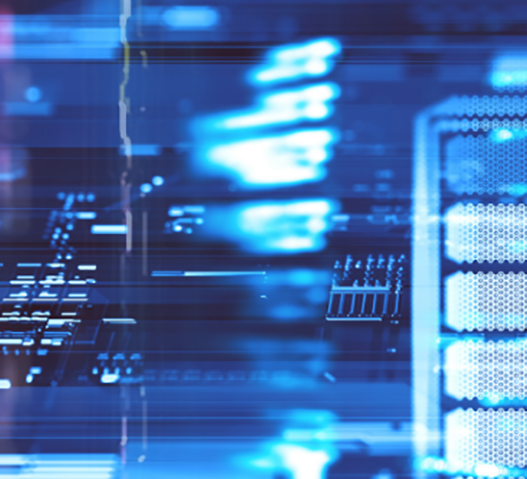A lithium-ion deep-cycle battery is a rechargeable battery specifically designed to provide a stable and reliable power source for a long period of time. Compared with traditional lithium-ion batteries, deep-cycle batteries have higher safety and longer service life, especially when used under harsh conditions. The main feature of deep-cycle lithium batteries is their ability to provide consistent power output over long periods of time and withstand deep discharges without negatively affecting their overall life or capacity. This makes deep-cycle lithium batteries ideal for applications that require long-lasting power, such as renewable energy systems, electric vehicles, recreational vehicles (RVS), Marine equipment, and off-grid power systems. The construction of deep cycle lithium batteries involves the use of specific chemicals such as lithium iron phosphate (LiFePO₄) or lithium nickel-manganous-cobalt oxide (NMC), which provide the batteries with increased safety and a longer service life. At the same time, deep-cycle lithium batteries can be discharged to a lower state of charge (SOC) without negatively affecting their overall life or capacity, which is also an important feature that distinguishes them from other types of batteries.
Deep-cycle lithium batteries have far more charging and discharging cycles than traditional batteries, and can withstand repeated charging and discharging cycles without a significant decline in performance. This characteristic makes deep-cycle lithium batteries more advantageous in applications that require frequent charging and discharging. However, it is worth noting that despite the many advantages of deep-cycle lithium batteries, their manufacturing costs may be relatively high, which limits their application in some areas to some extent. However, with the progress of technology and the improvement of the industrial chain, it is believed that the manufacturing cost of deep-cycle lithium batteries will gradually reduce, and its application fields will be further expanded. In general, lithium-ion deep-cycle batteries provide reliable support for a variety of power applications that require long-term, high-load operation with their excellent performance and stability. With the continuous progress of technology and the increasing maturity of the market, deep-cycle lithium batteries will play a more important role in the future.
Lithium-ion deep cycle battery is a new type of high-performance energy storage battery. This kind of battery is charged and discharged by the process of lithium ion embedding and deembedding between the positive and negative electrodes, which has the advantages of high energy density, long life and no memory effect. The following is a detailed introduction to lithium-ion deep cycle batteries.
& have spent The basic principle of lithium-ion deep cycle battery is to use the embedding and deembedding reaction of lithium ions in the positive and negative electrode materials to achieve the charge and discharge process. Its structure mainly includes positive electrode, negative electrode, electrolyte and diaphragm parts.
The cathode material is usually a compound containing lithium, such as lithium cobaltate, ternary materials, etc.; Anode materials are usually carbon materials such as graphite or silicon-based materials. The electrolyte is the medium responsible for transferring lithium ions between the positive and negative electrodes, while the diaphragm is used to prevent direct contact between the positive and negative electrodes, thereby avoiding short circuits.
& have spent The deep cycle characteristics of lithium-ion deep cycle batteries refer to the fact that during the charge and discharge process, lithium ions can penetrate deep into the inside of the positive and negative electrode materials to react, thereby achieving higher energy density and longer cycle life.
This deep cycle characteristic allows lithium-ion deep cycle batteries to maintain a high capacity during the charge and discharge process, but also to maintain good performance after multiple charges and discharges. This makes lithium-ion deep-cycle batteries have a wide range of application prospects in electric vehicles, energy storage systems and other fields.

& have spent Advantages:
(1) High energy density: Lithium-ion deep-cycle batteries have a high energy density, which means that more electrical energy can be stored under the same volume or weight.
(2) Long life: lithium-ion deep-cycle batteries have a long cycle life and can maintain high performance after multiple charges and discharges.
(3) No memory effect: lithium-ion deep-cycle batteries do not have memory effects, and can be charged and discharged at any time without affecting their performance.
Disadvantages:
(1) High cost: The current cost of lithium-ion deep-cycle batteries is relatively high, which limits its application in some fields.
(2) Sensitive to the environment: the electrolyte and positive and negative electrode materials of lithium-ion deep cycle batteries are sensitive to the environment and require special processing and storage conditions.
Because lithium-ion deep-cycle batteries have the advantages of high energy density and long life, they are widely used in many fields.
(1) Electric vehicles: lithium-ion deep-cycle batteries are one of the main power sources of electric vehicles, with high energy density and long life, and can meet the requirements of electric vehicles for driving range and performance.
(2) Energy storage system: Lithium-ion deep-cycle batteries can be used in areas such as home, industry and power systems to provide support for the storage and regulation of renewable energy.
(3) Electronic products: Lithium-ion deep cycle batteries are also widely used in mobile phones, laptops, tablets and other electronic products to provide power support.
In short, lithium-ion deep-cycle batteries show a wide range of application prospects in many fields with their advantages of high energy density and long life. With the continuous progress of technology and cost reduction, lithium-ion deep-cycle batteries will play a more important role in the future.